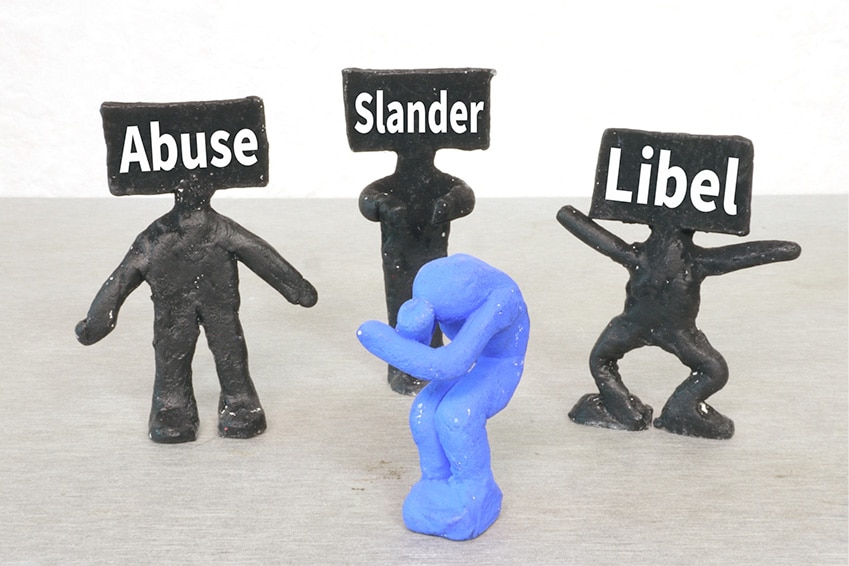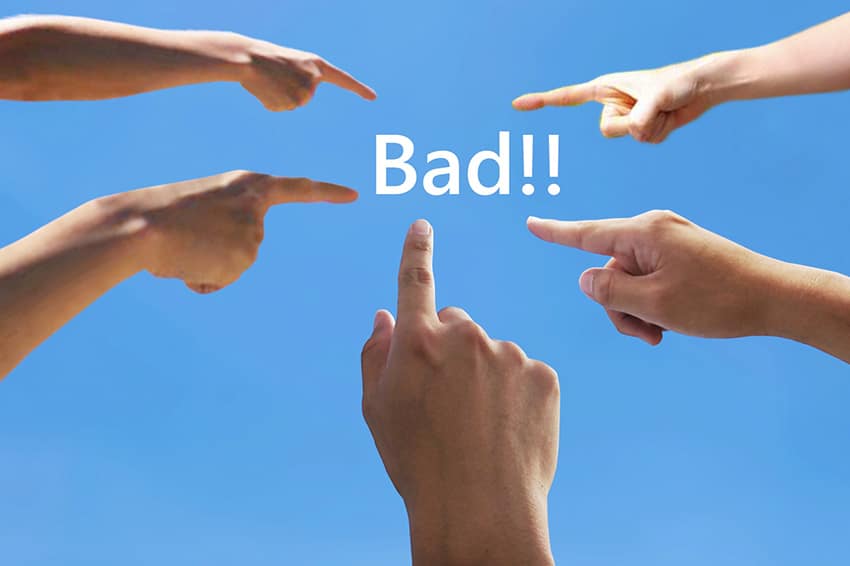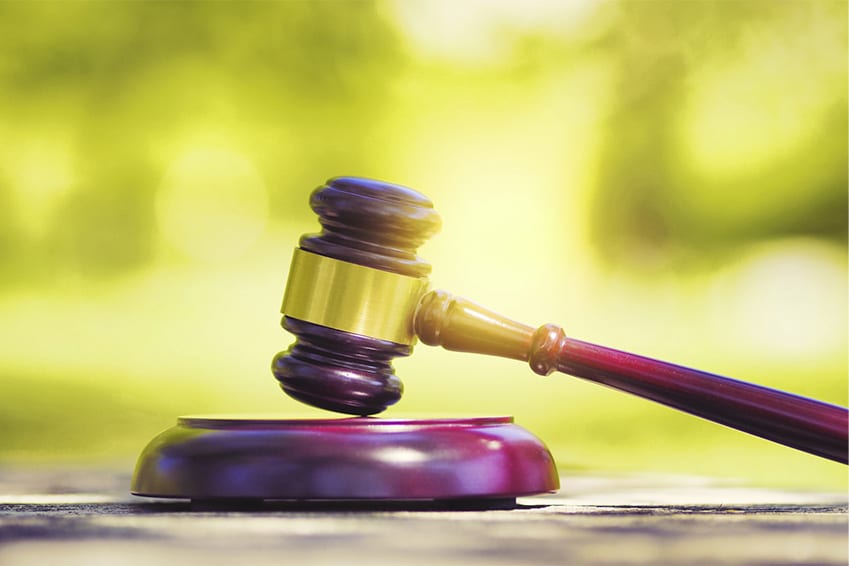Can Badmouthing a Company Be Considered Defamation? Explaining Examples of Damage and Methods of Response

Whether derogatory remarks about a company constitute defamation is a vexing issue that many businesses face. With the proliferation of social media, individuals can easily express their opinions, leading to an increase in posts that could damage a company’s reputation. However, not all critical opinions legally pose a problem.
This article provides a clear explanation of cases where derogatory remarks about a company may amount to defamation, illustrated with examples of actual harm. In addition, we will introduce other offenses beyond defamation that may be of concern and methods for dealing with the posters. By reading this article, you will understand the appropriate responses that a company should take.
Does Badmouthing a Company Constitute Defamation?

Defamation is not only applicable to individuals but also to corporations as victims.
Japanese Penal Code Article 230 (Defamation)
Any person who publicly presents facts and damages the reputation of another person shall be punished by imprisonment with work for not more than three years or a fine of not more than 500,000 yen, regardless of whether the facts are true or false.
Reference: e-Gov Law Search|Japanese Penal Code Article 230 (Defamation)[ja]
Article 230 of the Japanese Penal Code defines the victim of defamation as “a person,” which has been interpreted to include corporations (judgment by the Great Court of Judicature, March 24, Taisho 15 (1926)). This is because corporations and other organizations are active in society and are subject to social evaluation.
Therefore, writing derogatory comments about a company on internet forums or social media could potentially be considered defamation. However, if the information about a corporation’s misconduct has public interest or social significance, the illegality may be negated.
【What is Defamation?】
Defamation refers to the act of publicly presenting specific facts while lowering someone’s social evaluation, regardless of whether those facts are true. For example, statements or posts such as “Mr. X has embezzled company funds,” “Ms. Y has served time in prison,” or “Mr. Z is having an affair” would be considered defamation.
Note 1: To present in a summarized form
【Requirements for Defamation】
To sue for defamation, all three of the following requirements must be met.
| Publicity | Refers to a state where an unspecified large number of people can recognize the information, such as statements on the internet, social media, or through media outlets. Even statements to a small number of people may be considered public if there is a possibility that they could be conveyed to an unspecified large number. |
| Fact Presentation | Refers to the presentation of specific facts, regardless of their truthfulness. If there is no presentation of facts, one may be subject to charges of insult. |
| Defamatory Nature | Refers to content that lowers social evaluation, including slander and spreading a bad reputation. |
Cases Recognized as Defamation for Disparaging a Company

Acts that damage the reputation of a company or colleagues are increasingly recognized as a new and serious form of corporate misconduct. In particular, posts on the internet that defame a company or individual can lead to significant losses and require caution.
We introduce a notable case regarding online defamation (Supreme Court decision on March 15, 2010 (Heisei 22) Supreme Court decision on March 15, 2010 (Heisei 22)[ja]). The case began with the application of defamation charges against a man who posted disparaging comments about a ramen chain operator.
The Tokyo District Court’s First Instance Judgment
Traditional interpretation held that defamation charges could be avoided only if “defamatory expressions that are not true” were “mistakenly believed to be true based on certain documents or evidence.”
However, the Tokyo District Court’s first instance judgment presented a more lenient standard for personal internet posts (Tokyo District Court decision on February 29, 2008 (Heisei 20)). Specifically, it established that defamation charges would not apply except in cases where posts were made “knowing they were not true” or “without conducting an investigation within the individual’s possible range.” This decision sparked much discussion.
The reasoning was that rebuttals on the internet are easy, and the information on the net is generally considered to be less reliable, hence the need for a more lenient standard.
The Tokyo High Court’s Second Instance Judgment
The Tokyo High Court overturned the first instance judgment of the Tokyo District Court, indicating that the standards for establishing defamation through internet expressions have not changed from the traditional ones. Even if the post had a public interest purpose regarding facts of public concern, the content of the post was not proven to be true, and there was no reasonable ground to believe that the man who posted it believed it to be true, resulting in a guilty verdict (Tokyo High Court decision on January 30, 2009 (Heisei 21)).
The court imposed a fine of 300,000 yen, stating that defamation charges apply even to internet postings if they are made without certain documents or evidence to defame others.
The Supreme Court’s Decision
Ultimately, the Supreme Court dismissed the appeal, and the original judgment was finalized.
1. Even in the case of expression acts by individual internet users, defamation charges do not apply unless it is recognized that there is a reasonable ground, in light of certain documents and evidence, to mistakenly believe the stated facts to be true. It is appropriate to interpret that a more lenient requirement should not be applied to deny the establishment of the crime.
Quote: Courts | Supreme Court Case Summaries[ja]
The court also pointed out that internet information can be viewed instantly by an unspecified large number of people, which can lead to serious defamation damage, and that once reputation is damaged, it is not easy to restore, and even if rebutted, it does not guarantee the restoration of reputation.
When Criticism of a Company Does Not Constitute Defamation

Even if the criteria for defamation are met, criticism of a company may not constitute defamation if it falls under the grounds for justification of illegality (Note 2).
Note 2: Refers to special circumstances where an act that would normally be illegal is not considered so.
To qualify as grounds for justification of illegality, all three of the following must be satisfied: ‘public nature of the fact,’ ‘public interest of the purpose,’ and ‘proof of truthfulness.’
| Public Nature of the Fact | Refers to facts that concern the public interest, typically involving public officials, politicians, or individuals with social influence. |
| Public Interest of the Purpose | Indicates that the purpose of disclosing the fact must serve the public good, and does not apply if the primary motive is monetary gain or personal grudge. |
| Proof of Truthfulness | It is necessary to prove that the disclosed fact is true in its main aspects. However, even if it is true, it does not constitute grounds for justification of illegality if there is no public nature or public interest. For example, information about an individual’s criminal record is less likely to be considered of public nature or interest, and thus may constitute defamation. |
If all three of these are satisfied, the act does not constitute defamation.
Specific examples where grounds for justification of illegality may be recognized include whistleblowing against corporate misconduct or criticism of politicians. However, personal attacks on politicians or baseless slander do not qualify as grounds for justification of illegality.
Is Termination Possible if an Employee Posts Negative Comments About the Company Online?

The most severe action a company can take against an employee is termination. Such a significant decision requires substantial justification.
When assessing the validity of a termination, the principle of ‘abuse of the right to dismiss’ is applied, which demands ‘objectively reasonable grounds’ and ‘social appropriateness’ for the dismissal. If these conditions are not met, the termination may be considered unjust.
In particular, when considering termination due to an employee’s social media posts, it is crucial to carefully consider the specific content of the posts and the impact they have caused. Decisions should not be based on emotional reactions but should be analyzed from an objective standpoint.
Related article: What to do if you face ‘part-time job terrorism’ on SNS? Is termination or claiming damages possible?[ja]
Crimes Beyond Defamation for Disparaging a Company

Posts disparaging a company can lead to charges not only of defamation but also of ‘Credit Damage’ and ‘Fraudulent Interference with Business Operations’.
Japanese Penal Code Article 233 (Credit Damage and Business Interference)
Any person who, by spreading false rumors or by using deceit, damages another person’s credit or interferes with their business operations shall be punished by imprisonment for not more than three years or a fine of not more than five hundred thousand yen.
Reference: e-Gov Law Search | ‘Japanese Penal Code Article 233 (Credit Damage and Business Interference)[ja]‘
Credit Damage Crime
Credit Damage Crime involves intentionally spreading false information to harm another’s reputation. ‘Credit’ here includes not only financial standing but also the public’s perception of the quality of products or services. To establish Credit Damage Crime, both falsehood and intent are required. Statements or posts based on true information or innocent misunderstandings do not qualify, but depending on the circumstances, they may lead to charges of defamation or other crimes.
For example, in a case where a woman was charged with Credit Damage Crime for posting false negative reviews about a health supplement, the woman was not prosecuted, but the company executive who requested the false reviews was fined 200,000 yen. In another case, where a person mixed a foreign object into a juice bought from a convenience store and falsely reported it to the police, the social credit of the product’s quality was also considered under Credit Damage Crime.
Fraudulent Interference with Business Operations Crime
Fraudulent Interference with Business Operations Crime involves using deceit to interfere with someone’s business. To establish this crime, three elements are required: ‘deceit,’ ‘business,’ and ‘interference.’ Deceit refers to acts of trickery or exploiting misunderstandings, including direct deception or tampering with machinery or products. Business refers to continuous commercial or administrative activities, encompassing not only profit-driven enterprises but also volunteer and club activities. Interference includes not only actual hindrance to business operations but also the creation of a state where interference is likely.
For instance, making fictitious delivery requests to a restaurant, causing unnecessary deliveries, harassing a ramen shop with malicious silent calls, or inserting needles into food products for sale are all examples of Fraudulent Interference with Business Operations Crime. Similarly, a fast-food employee posting a video on a sharing site showing disregard for hygiene management also falls under this category.
While neither Credit Damage Crime nor Fraudulent Interference with Business Operations Crime are complaint-required offenses (crimes that require a victim’s complaint to prosecute), the likelihood of criminal prosecution by the police is low, and in practice, a victim’s complaint is preferred.
How to Respond When Your Company is Badmouthed Online

When your company is badmouthed online, a swift and effective response is essential. Here, we will explain the specific steps to take when dealing with defamation, divided into the following four steps:
- Request the removal of the defamatory post
- Identify the poster
- Consult with a lawyer
- File a complaint or accusation with the police
Below, we will explain each step in detail.
Requesting the Removal of Defamatory Posts
When defamatory content is spread on social media or bulletin boards, the top priority should be to request the removal of the relevant post and prevent further dissemination. The main methods to achieve this goal are as follows:
- Direct approach to the platform operators
- Utilizing dedicated reporting systems (e.g., “report functions” or “inquiry forms”)
While a company can request the removal on its own, engaging a lawyer to file for a provisional disposition for deletion can lead to quicker and more certain results.
However, complete removal of information that has already been widely disseminated is not realistic. In such situations, it is advisable to strategically use official statements or press releases to counteract the misinformation and disseminate accurate information. For more details on post removal, please refer to the following article.
Related article: How to Delete Negative Tweets on Twitter?[ja]
Identifying the Poster
To address online defamation, it is necessary to identify the originator of the content. Identification typically involves a two-step disclosure request process. First, a request is made to the site operator for the disclosure of the IP address, followed by a request to the internet service provider for the subscriber’s information.
When making a request for the disclosure of the poster’s information, it is crucial to carefully verify whether the content in question legally constitutes defamation. Expressions of opinion, content lacking specificity, or statements that are true are less likely to be considered defamatory.
Furthermore, if a significant amount of time has passed since the post was made, the provider’s records may have been deleted, making it difficult to identify the originator. Considering these factors, assess the feasibility and effectiveness of making a disclosure request.
Following the legal revision in October of Reiwa 4 (2022), the process for disclosing sender information has been simplified. The new “Order for Disclosure of Sender Information” system has been designed to expedite procedures and reduce the burden. However, depending on the circumstances, the traditional method may still be appropriate, so it is wise to choose the best approach with the advice of a lawyer.
If you would like to learn more about requests for the disclosure of sender information, please refer to the article below.
Related Article: What is a Request for Disclosure of Sender Information? A Lawyer Explains the New Procedures and Their Flow Following the Amendment[ja]
Consulting with an Attorney
Defamation on the internet can have serious consequences for the victim, and addressing it requires specialized knowledge and swift action. Many victims are often unsure of how to proceed. To effectively tackle this issue, the support of a legal expert—an attorney—is indispensable.
An attorney can provide comprehensive support, ranging from negotiations with website operators or providers to court procedures for preserving evidence, and even coordination with the police and prosecutors. Especially in internet defamation cases, where time is of the essence, an attorney’s quick and accurate judgment is key to protecting the victim’s rights.
Attorneys execute complex responses, such as effective evidence collection, drafting proper complaints, and expediting legal procedures, utilizing their experience and knowledge.
Filing a Criminal Complaint or Accusation with the Police
If you wish to pursue criminal charges against someone, filing an accusation with the police is an effective measure. By submitting an accusation, the police are generally obligated to accept it. This differs from a simple complaint report, as it increases the certainty that an investigation will commence.
Once the accusation is accepted, the police will conduct an investigation, which is then referred to the Public Prosecutor’s Office. However, the decision to proceed with a case rests with the prosecution, and it does not necessarily lead to an indictment.
Furthermore, defamation is a complaint-based offense, meaning only the victim can file an accusation. There is a three-year statute of limitations from the time the victim becomes aware of the perpetrator, so it is important to be mindful that legal action may not be possible after this period has elapsed.
Summary: Badmouthing a Company Can Also Constitute Defamation

As a corporate representative, when derogatory or slanderous remarks about your company are posted online, swift and appropriate action is required. Badmouthing a company carries the risk of significantly damaging its reputation and credibility, and may also constitute defamation.
Particularly, slander not based on fact or content that unfairly degrades the company’s social standing can be subject to legal action. There are precedents where defamation against a company has been recognized in court.
However, there are exceptions for statements of truth or critiques with public interest, so each situation must be carefully assessed. The initial response should involve requesting the removal of the problematic post and proceeding to identify the poster.
At the same time, we strongly recommend consulting with a lawyer. A lawyer can analyze the situation from a legal perspective and suggest the best course of action. If necessary, they can also consider filing a police report or a criminal complaint.
In addition, if an employee of your own company is responsible for the derogatory post, it is necessary to consider appropriate disciplinary action based on the employment regulations. However, when imposing disciplinary measures such as dismissal, legal compliance is crucial, and advice from a lawyer is essential.
Beyond defamation, there is also the potential for crimes such as business interference or credit damage, so it is wise to seek comprehensive advice. To protect the company’s reputation and respond appropriately, we recommend consulting with a lawyer, who is an expert in the field.
Guidance on Measures by Our Firm
Monolith Law Office is a legal practice with extensive experience in both IT, particularly internet law, and legal matters. In recent years, overlooking information related to reputational damage and defamation spread online can lead to serious consequences. Our firm provides solutions for managing reputational risks and handling internet crises. Please refer to the article below for more details.
Areas of practice at Monolith Law Office: Reputational Risk Management for Listed Companies and Similar Entities[ja]
Category: Internet





















